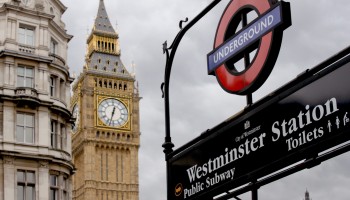The BBC claims to have seen emails obtained by anti-corruption charities, Global Witness and Finance Uncovered, which say that Shell representatives were negotiating with Etete for a year before the deal was finalized.
According to one of the corporate emails from March 2010, a former British intelligence operative who was employed by Shell wrote that Etete could "smell the money."
"If, at 70 years old, he does turn his nose up at 1.2 bill he is completely certifiable and we should then probably just hold out until nature takes its course with him," the email said, indicating Shell’s initiative in the bribe.
Shell had allegedly employed two former MI6 operatives to gather information in Nigeria. The two speculated who would get “payoffs” if the deal is secured.
BuzzFeed News and Italian newspaper Il Sole 24 Orealso obtained the emails as well as a phone recording between Shell executives who were worried about evidence Dutch police seized during last year’s raid of Shell’s headquarters in the Hague following the controversial oil deal.
In the telephone recording, Shell’s chief, Ben van Beurden is telling his then chief financial officer, Simon Henry “that the emails among employees contained language like, “I wonder who gets a payoff here.” Beurden is further heard warning Henry not to volunteer any unnecessary information to the police.
Etete’s company, Malabu, acquired the rights to OPL 245 for a small sum while he served as oil minister between 1995–1998.
The oilfield is estimated to be worth nearly half a trillion dollars at today’s prices.
In 2011, Shell and Italian oil company ENI paid the Nigerian government $1.3 billion to acquire OPL 245. Malabu allegedly received more than US $1 billion of this money from the government.
Nigeria’s anti-graft agency filed corruption charges last month against Shell, Eni and nine others for paying US$ 801 million to Nigerian businessmen and politicians in exchange for an oil prospecting license.
Shell said in a statement that it did not believe that any current or former employees had acted illegally.






